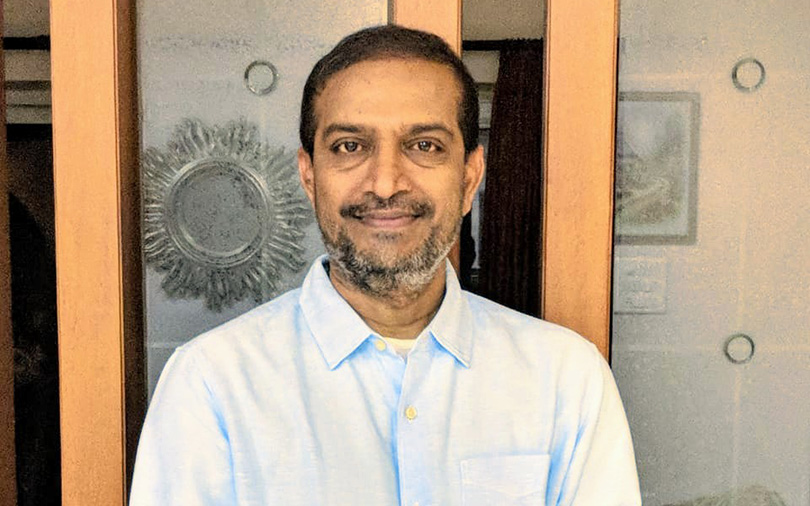
Sateesh Andra on what Endiya Partners has in common with PV Sindhu's coach


Early-stage investment firm Endiya Partners is nearly two years into its $26 million debut fund and has built a portfolio of a dozen technology investments.
These include software-as-a-service (SaaS) startups Darwinbox and Hansel.io, artificial intelligence-based diagnostics startup SigTuple Technologies, online lending platform Kissht, and omni-channel health and fitness startup CureFit.
Founded in early-2015 by Sateesh Andra, Ramesh Byrapaneni and Abhishek Srivastava - all formerly with Ventureast’s Tenet Fund - Hyderabad-headquartered Endiya focuses on startups that are leveraging emerging technologies to build products that can be rolled out in global markets.

In a telephonic conversation with TechCircle, Andra spoke about how the debut fund’s investment strategy has played out so far.
Edited excerpts:
Endiya has been investing for nearly two years now. Has the investment strategy played out the way you had planned?

When Ramesh, Abhishek and I got together at Endiya, the aim was to do a sort of Gopichand (badminton coach Pullela Gopichand) act - find good quality product startups, fund them, work with them and grow them. To a large extent, we’ve stayed focused and executed on that particular strategy so far.
Is Fund I done in terms of making investments?
We may make a couple of new investments at best from this fund. It’s been interesting in terms of how the investments have played out. Early on when we started investing through the fund, we thought that we would do the first cheque and participate in the Series A round on a pro-rata basis. And, we would sit out of the Series B round. But, as things have turned out, we’ve participated in most of the rounds, even Series B.

At this point, the fund is about 60% invested. So we now have room for only one or two more investments and then we’ll reserve the remaining capital for follow-ons.
Endiya has chosen to be a specialist technology investor. Are you seeing enough high-quality deal flow in your preferred areas of focus?
Broadly we look at product startups that leverage SaaS, mobile, security, IoT (internet-of-things), artificial intelligence (AI) and then digital health and medical devices.

When we look at deals, we look at startups that are building products at the confluence of some of those technology themes. For example, Hansel.io, a plug-and-play toolkit for app developers, is mobility and SaaS. ShieldSquare straddles security and SaaS. SigTuple is medical diagnostics but it’s powered by AI.
We are able to take our time and connect the dots to find these deals because we are the kind of fund that has 13-14 portfolio firms. That works out to about 5-6 deals a year. So yes, we are getting the kind of deals we want.
You specifically look for startups that are building products that can be rolled out globally. How has that investment thesis worked out so far across the portfolio?

It’s worked out quite well actually. Darwinbox started out as a cloud-enabled human capital management platform. They did very well in India and now they’ve gone into Singapore and Indonesia. Hansel.io did the same following the recent funding round. They did really well here and were able to sign up clients such as Paytm and Redbus and now they are in the US and Southeast Asia.
Alphaics is entirely global. It’s an AI processor company that has built something called a RAP (real AI processing) chip that can be used in self-driving cars, robotics, cloud computing and unmanned vehicles.
Shield Square, again, fits the global theme. When internet traffic comes to a content company or an e-commerce company, they have to distinguish benign crawlers from malignant crawlers. Benign crawlers would be the equivalent of Google. Shield Square does that analysis and 70% of its customers are global enterprises.

Given the specialist technology focus, how has the portfolio done in terms of attracting follow-on funding from other investors?
We’ve invested in 12 companies so far and nearly all of them have been able to raise follow-on rounds from new investors. Many of those investors are fairly mainstream investors and that’s a sign that there’s a fair bit of appetite in the market for such businesses.
SigTuple raised a Series B round this year from Accel Partners and IDG Ventures India. We also participated in the round. Lightspeed came into Darwinbox. Vertex Ventures has come in as an investor in two of our companies. The first was Hansel.io and recently they also led a round in online lending platform Kissht. Again, we’ve participated in all those rounds.
A couple of others in the portfolio will announce follow-on rounds in the next few months. I don’t think there’s any company in the portfolio that hasn’t been able to raise follow-on capital after the seed round.
It’s early but any challenges so far with the portfolio in terms of performance or execution?
We haven’t had any scares so far. Sometimes I find that unreal. But, of course, we’ve been in the investment business for a while and we all know that some companies will perform very well and others - for whatever reason, competition or not being able to execute well - will not do well. So far it’s been pretty good.
I would be lying if I said there are no challenges. Some of the portfolio companies are scaling very quickly and there the challenge will be to keep the discipline and respect the capital. For companies that are have started generating revenues early, the challenge will be to stay focused on the business model, get repeat customers and so on.
